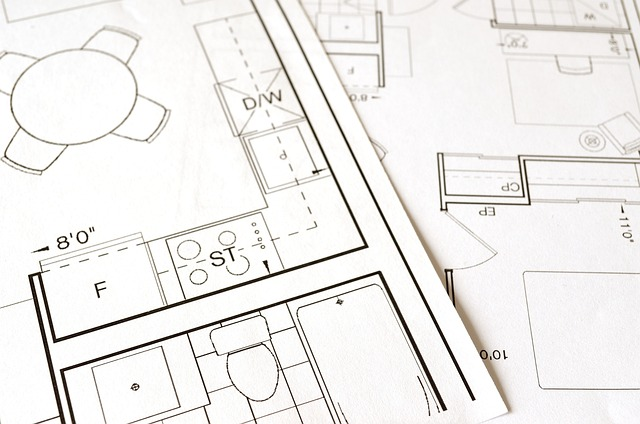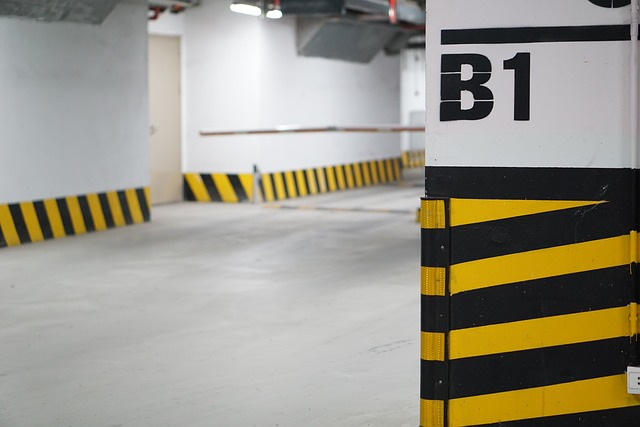Are you considering buying a condo unit as an investment property? If so, you’re in for an exciting journey! There’s something special about investing in real estate, and the possibility of owning a condo unit is one that should be taken seriously.
However, before you jump into the market head-first in buying a condo, it’s essential to ask yourself some key questions. After all, condo living comes with its own set of unique characteristics—from rules and regulations to amenities and condo fees. Asterra Condominium offers wide amenities and low condo fees, making it affordable for everyone. Check out their amenities here.
In this blog post, we’ll explore all the important questions that you need to ask before investing in condominium real estate. We’ll break them down by categories like costs, legalities, amenities & fees, condo association’s insurance policy, and more. So if you’re ready to get started on your quest toward making a profitable condo investment, Here are essential questions to ask when buying a condo!
Are condos good for first-time buyers?
For those who are considering buying their first real estate property, a condominium is an excellent option. Not only are condos generally cheaper to purchase than other types of residential property, but they also commonly provide some additional amenities and services such as doorman service, swimming pools, and fitness centers.
Furthermore, the location of condos can often be attractive to buyers interested in convenience and city living. If you feel like this is the right option for your lifestyle and budget, then it’s important to have all your questions answered before you make such a big investment. You may check the reasons Asterra Condominium’s preference is on the rise.

What Amenities Does the Complex Offer?
When buying a condo unit, it’s essential to find out what amenities the complex offers and what restrictions may come with them. The questions you should be asking are:
- Is there an amenities package available?
- Are there swimming pools, tennis courts, or other recreational facilities?
- What type of security is in place?
- Does the complex have access to public transportation?
- Is there a gym or fitness area available to residents?
- Are there any restrictions on pets, noise levels, or parking availability?
- Are there any additional fees for use of the amenities?
- How often are the amenities maintained and by whom?
By knowing exactly what you’re getting into upfront, you can make an informed decision about whether or not this particular condo is worth your investment—all it takes is a bit of research!
Is It Close to Necessity Locations Such as Grocery Stores, Gas Stations, and Banks?
When considering a condo, you’ll want to make sure it’s close to all the necessary locations, such as grocery stores, gas stations, and banks. After all, there is nothing worse than having to drive miles over to pick up your necessities – especially when you are just trying to grab a gallon of milk!
By looking into the area surrounding the house and the condo you’re considering, you can make sure there are plenty of:
- Grocery stores nearby that provide fresh-made meals and general supplies
- Gas stations for topping off your car’s tank
- Banks for quick financial transactions
- Pharmacies for any medicines you may need in a jiffy
- Post offices or other mailing services
When your everyday amenities are close by, life will be much easier. You won’t have to worry about long trips or rush hour traffic when you need something on the double. Make sure to ask questions and get a good idea of how close these amenities are – it could mean the difference between convenience and chaos!

How good is the soundproofing?
Have you asked how good the soundproofing is? Being able to get a restful sleep in peace and quiet is essential, but this can be difficult if your condo isn’t well-insulated or lacks proper acoustic properties. To ensure your condo is equipped with the necessary soundproofing, you should consider researching these three factors:
Building Structure
The building’s structure, including its walls and floors, should be solid and stable enough to reduce noise from outside sources. Ask the property manager or real estate agent whether the building follows local soundproofing regulations and what type of material was used for building construction.
Doors & Windows
Pay attention to details such as doors and windows, which should be designed for noise reduction. Opt for thicker wooden doors with a solid core, and insulated glass windows that have airtight seals, plus caulk, insulation foam, and other sound-dampening materials. Make sure these features are included in order to reduce loudness from outside sources.
Flooring
Last but not least; don’t forget about the flooring! Rugs are always a great option as they can help absorb some of the noise coming from above or below you; however, hardwood floors are especially good as they provide additional insulation as well as look stylish.
By researching each of these factors before buying your condo, you can make sure it is equipped with appropriate soundproofing so that you can enjoy peace and quiet all year round!
How Are Common Areas Maintained and What Are the Fees?
When you purchase a condominium, you will likely become part of a homeowner association (HOA). This means that you are responsible for paying fees for the maintenance and upkeep of the common areas in the condo building. As such, it is important to ask about these fees before signing on the dotted line.
The fees will vary depending on the size and location of the complex, however, they typically include costs such as:
- Insurance premiums
- Maintenance and repair expenses
- Taxes including property taxes
- Utility bills
- Landscaping
- Security
- Management services
It is also important to ask how any special assessments are taken care of, as these can be surprise costs that are passed along to owners. Knowing what your estimated monthly fees are before buying can help you better plan for future expenses and decide whether or not investing in a condominium is right for your budget.
Understand the HOA Fees
Before investing in a condominium, you should understand the Homeowners Association (HOA) fees. Knowing what these fees include and how much they cost can help you make the right decision.
Common Elements
HOA fees typically cover all the caretaking responsibilities like maintenance and management of common elements, such as:
- Common areas like lobbies, swimming pools, outdoor decks, and other outdoor areas used by all members of the complex
- Community services like security, trash pick-up, snow removal, and landscaping
- Insurance for common areas like roofs, siding, pathways, and yards
- Utilities for common areas such as water, sewer, and electricity.
Unexpected Costs
It’s important to note that HOA fees may also include unexpected costs such as maintenance fees for shared appliances or major repairs made to the structure. It’s best to ask your real estate agent if there are any hidden costs included in the HOA fee so you can budget accordingly.
So when buying a condominium, make sure you understand HOA fees before signing on the dotted line!
What does the insurance cover?
When investing in a condominium, it’s important to know what you’re covered for in terms of the insurance. Most condos will have some form of insurance policy, but you’ll want to ask precisely what is covered.
Here are some key questions to ask:
- What type of policy does the condominium have?
- Does the policy cover potential damage from fire and flooding?
- Does it cover repairs for major appliances and fixtures that could break down over time?
- Does the coverage provide liability protection for any accidents that may occur within the condo complex?
- Are there any additional policies or deductions that you may need to purchase separately?
Knowing all the details about your condominium’s insurance coverage can help you make an informed decision about your investment and ensure that you are properly protected.
Research the Market and Appreciation Potential
Do you want to make sure that your investment will be worth it in the long run? When buying a condominium, it’s essential to research the market and appreciation potential for the area, so you’ll know that your property won’t depreciate over time. Luckily, there are plenty of ways to get started:
Local Property Values
By researching local property values, you’ll have a better idea of what people are willing to pay for properties similar to your own. This will give you a good baseline for determining market value and estimated appreciation.
Talk to a Realtor
Hiring an experienced realtor is key for making sure that you’re informed about the local market and finding the best possible prices. They can also provide insights and advice on owning condominiums, helping you feel more prepared as an investor.
Other Expenses
Investing in real estate can come with other costs beyond just buying the property – such as insurance, home maintenance, and association fees. So don’t forget to factor them into your budget when considering your condo investment! With all this in mind, it’s easy to see why researching the market is such an important step in condo shopping.
Are Pets Allowed and Do They Have Restrictions?
One of the most important questions to ask when buying a condominium is whether it allows pets, and what kind! This is essential if you are considering getting a pet or already owning one. Good news, Asterra Condominium allows pets in your home. You can enjoy luxury living with your furry friends.
Most condominiums have rules and regulations when it comes to pet ownership. It is also necessary to check with the condo association if they have any breed or size pet restrictions either. Also, inquire about whether there are any additional pet fees that may be necessary to cover things like waste disposal or damage caused by pets.
It is also wise to check whether the rules for the exterior areas of the building apply to you as well. For instance, if you have a dog that needs to be walked, does the property provide areas where you can take your furry friend? Are there designated walking routes? You should also find out how many pets are allowed in the building before signing a contract and finalizing your purchase.
By being aware of all of these details and restrictions ahead of time, you can make sure that your beloved pet will feel comfortable in your new home and be able to thrive in it for years to come!

Is there parking for condo owners?
The question of parking is an important one to consider when investing in condo real estate. You should find out if parking is provided for condo owners, and if so, what type of parking it is (e.g. garage, surface lot, etc.). Consider if the spaces are assigned or open, if there’s a fee involved, and if you can accommodate more than one vehicle if necessary.
It’s also important to ask what type of public transport options are available nearby – or even better – within the condo community or complex itself. Depending on the location of the property and its size, some condominiums may offer shuttle buses that connect with nearby public transportation hubs or free ridesharing for residents. This can be a great added bonus for those who don’t own cars but need access to public transportation!
Be mindful that large condominiums typically have more parking available for their residents than smaller ones, so this is another factor to keep in mind when looking into buying a condominium. Finally, don’t forget to ask about guest parking options as well – you’ll want to make sure your visitors can find a spot without any hassle!
Final word
If you’re looking to get into the condo market, doing your due diligence with research and asking the right questions can make the process easier and more profitable for you in the long run. Do your research, talk to the right people, and take your time to make sure you make the best decision for your investment.
Remember to look into all the associated costs, research all the available options, and get all the relevant paperwork—financing, legal contracts, building documents, insurance, and more—before making a final decision. Once you’re satisfied that all the boxes are ticked, you’ll be ready to move forward with your condo purchase with confidence.
However, before you jump into the market head-first, it’s essential to ask yourself some key questions. After all, condos come with their own set of unique characteristics—from 1rules and regulations to amenities and fees. You may check out Asterra properties and available units.
In this blog post, we have explored all the important questions that you need to ask before investing in condominium real estate. So if you’re ready to get started on your quest toward making a profitable condo investment, start your inquiries at Astera Condominium.
Written by JJM





